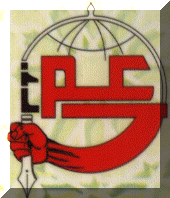Hizballah - External Aid
 Hizballah was established by the Iranian Revolutionary Guards who came to Lebanon during the 1982 "Peace for Galilee" war, as part of the policy of exporting the Islamic revolution. It receives substantial amounts of financial, training, weapons, explosives, political, diplomatic, and organizational aid from Iran and Syria. Published reports that Iran provides hundreds million dollars of aid annually are probably exaggerated. Iran probably provides financial assistance and military assistance worth about $25-50 million.
Hizballah was established by the Iranian Revolutionary Guards who came to Lebanon during the 1982 "Peace for Galilee" war, as part of the policy of exporting the Islamic revolution. It receives substantial amounts of financial, training, weapons, explosives, political, diplomatic, and organizational aid from Iran and Syria. Published reports that Iran provides hundreds million dollars of aid annually are probably exaggerated. Iran probably provides financial assistance and military assistance worth about $25-50 million.
Hizballah is closely allied with, and often directed by, Iran but has the capability and willingness to act independently. Closely allied with, and often directed by Iran, it may have conducted operations that were not approved by Tehran. Though Hizballah does not share the Syrian regime's secular orientation, the group has been a strong ally in helping Syria advance its political objectives in the region.
The "Martyr's Charity" (Bonyad-e Shahid) supplied charitable funds for the families of suicide bombers. In 2001, Paraguayan police searched the home of Hizballah operative Sobhi Mahmoud Fayad in the the Tri-Border Area where Brazil, Argentina, and Paraguay meet. Police found receipts from the Martyr's Organization totaling more than $3.5 million for donations Fayad sent, though authorities believed Fayad had sent over $50 million to Hizballah since 1995.
Besides operating a worldwide network of fundraisers, funds are also raised through so-called 'charity funds.' Some of these are extremist Islamic institutions that, while not directly connected to Hizballah, support it, albeit marginally, in view of their radical Islamic orientation. While some of these funds undoubtedly pay for Hizballah's military and terrorist operations, other funds enable the group to provide its members with day jobs, to drape itself in a veil of legitimacy, and to build grassroots support among not only Shi'a, but also Sunni and Christian Lebanese.
In March 2005, Hizballah organized a large demonstration to protest American and other international pressure on Syria to completely withdraw from Lebanon. Syria did subsequently withdraw its military and intelligence forces. The Syrian withdrawal may have left a vacuum for Iran to expand its influence in Lebanon and on Hizballah.
To create a financial network in Venezuela, Hezbollah initially opened a chain of businesses. In the seven years since 2005, this type of activity expanded, and Iran is said to have illegally laundered billions of dollars via these businesses through the Venezuelan financial sector. Venezuela has also been known to given Hezbollah cash as evidenced by the following example: On 21 January 2013, Tahmasb Mazaheri, the former Central Bank President of Iran, was arrested in Germany after Customs Agents discovered he was in possession of a 300 million Bolivar check (equivalent to $USD 70 million). This check was issued by the Bank of Venezuela.
In Israel's view, Hizballah's activities are part of Iran's overall policy with regard to Israel, which is to fan the flames of the Israeli-Palestinian conflict and initiate terrorist activities against Israel, despite the fact that Hizballah is a Lebanese organization consisting entirely of terrorists from Lebanon, with no national connection to the Israeli-Palestinian conflict. In view of Iran's interest in smudging its fingerprints with regard to direct control over internal terrorist activities, Hizballah's status is significant as Iran's front-line operative arm against Israel.
Iran attempts to show that similar strategic gains provide cohesion between Iran and Hezbollah that promises subordination of the proxy to its master without any stringent control. Iranians clearly know the cause and nature of the relationship with Hezbollah and understand the inherent limitations and constraints.
In 2021 Hezbollah's economic laboratories began a series of experiments to study options for complete independence from Lebanon, by establishing a parallel economic system that includes stores, warehouses, and ration cards to support the people belonging to the party in Lebanon and strengthen their loyalty to their benefactor and the supreme authority that rules them.
The experiments include building an integrated catering system that includes a network of stores in the territories subject to the party’s state. The regime adopts the principle of state care for citizens through smart “carpet” cards that entitle their holders to purchase goods subsidized by the government of the party, which is in turn supported by Iran. The regime relies on a sustainable economy based on importing from the Iranian Empire and selling goods made in its cities. Tehran, Baghdad and Damascus.
With this step, the party gains economic independence from Lebanon, after gaining political and security independence, which paves the way for the subjection of the entire remaining territory of the Lebanese state to its authority, after it established for itself a position hostile to Lebanese imperialism, refusing to submit to its constitution, law, borders, and the will of its people. This step also achieves the party's goal of diversifying its investment and trade basket, to include rice, pasta, sugar, and non-narcotic medicines, in addition to drugs, explosive materials, and Lebanese and Syrian blood, as supply stores are a nice addition to weapons stores and ammonium nitrate.
|
NEWSLETTER
|
| Join the GlobalSecurity.org mailing list |
|
|
|

